Your Annotated Smartphone Bathroom Reader for Saturday, August 18, 2012. Between the Dwight Howard trade and the Melky Cabrera suspension, it's been a long week in the Diss' North Bay office. Hence, we discuss Vanessa Bryant, Jay-Z, blogging, untimely tragedies, and the NBA age requirement. And --
Between the Dwight Howard trade and the Melky Cabrera suspension, it's been a long week in the Diss' North Bay office. Hence, we discuss Vanessa Bryant, Jay-Z, blogging, untimely tragedies, and the NBA age requirement. And -- sigh --
Dwight Howard, of course. Many thanks to Symbol Lai and Franklin Mieuli for the labor-share, and a hearty welcome to first-time-bathroom-reader-contributor Andrew Snyder.Bleacher Report and HuffPo: How the Only Two Nine-Figure Blog Exits Used Crowds Wisely
Sarah Lacy
PandoDaily
The big news of last week in the sports blogging world was that Bleacher Report (for whom occasional Diss-cussant Kurt Scott writes regularly) was purchased for $200 million by Time Warner. Bleacher Report, a catch-all sports blog/site started in 2006 by four high school friends, joins the Huffington Post as the only blogs to secure nine-figure price tags when larger corporations looked to secure their creative content and writing staffs. Sarah Lacy explores these purchases, and the processes by which both sites rose to prominence. In Lacy's view, both B/R and HuffPo can attribute their success to two important factors. The first is an investor named Fred Harman, whose investment firm (Oak Investments) backed both sites, and provided the funds necessary to establish a payroll and increase and expand marketing techniques. The second, of course, is the business models of the sites themselves. Both sites employ highly paid professional bloggers and amateur writers. While the professionals write the high-profile articles, and give the sites name-brand credibility, the faceless, unpaid army of writers (who are just happy to have their work on a well-read site and will gladly write for free) drive up the pageviews and pad the site with content. This is certainly the case with B/R, who have employed Bethlehem Shoals, Ethan Sherwood Strauss and Rob Mahoney, and accepted the volunteered services of thousands of others. It's almost like a diffuse sportswriting internet sweat shop. Well played, Bleacher Report, you industrialist dogs! And in case you're wondering: The Diss is for sale, and only for $10 million dollars. That's right, just eight easy payments of $999,999.99, plus shipping and handling! And yes: we accept American Express.
- JG
The London Chronicles, Vol. 6: The Mailbag That Wasn't
Bill Simmons
Grantland
A week ago, the world besides L.A. ground to a screeching halt and recoiled in collective horror at the latest installment of the Dwightmare. Because every basketball news outlet rushed to make sense of this blockbuster trade (including The Diss), I'll spare those of us who've dealt with the aftermath through willful forgetting. Still, this article is worth reading for the following four (4) reasons:
Bill Simmons apparently had the same reaction as Jacob and, I would venture, the rest of the basketball 99%. In addition to signaling The Diss's relevance in the world of sports blogs (yippee!) that this phenomenon occurred suggests the unquestionable moral authority of non-Laker fans. (Relax, I'm just kidding).Simmons attempts to think through the ramifications of this power shift for other organizations like the Nets, Rockets, Nuggets, and, believe it or not, Sixers. That's right folks, in the midst of this furor over how great the Lakers will be, there is an established organization in a little city called Philadelphia that also stands a chance to benefit greatly.In his analysis of the Sixers, Simmons also gives an incisive run-down of the risks the Sixers run by acquiring Andrew Bynum. The long and short of Simmons' position seems to be: Pipe down, Philly! You have finally gotten rid of that underachieving burden Andre Iguodala (a minority opinion I, a Sixers fan, takes), but you're not out of the woods yet. Check out Simmons' list of fears. It's like he
knows us Philadelphians.Though this isn't exactly a reason why you should read Simmons' piece, it will make the article more illuminating if you take this step. Please, after you've read his Fear No. 2, flip back here and insert a Fear 2.5: Not only do the Sixers now have two of the most mercurial players in the NBA on their team in Bynum and Evan Turner, they have undoubtedly, with Doug Collins,
the moodiest coach in the NBA.Someone get the Sixers a good shrink. I have a feeling this season will be a bundle of feelings.- SL
With Arena, Rapper Rewrites Celebrity Investors' Playbook
David M. Halbfinger
New York Times
Jay-Z, Beyonce, and now Blue Ivy have mainstream cachet in American pop culture, and despite Jay-Z's ownership of a minuscule percentage of the Brooklyn Nets, he's had an outsize influence on the team, detailed in this NYTimes piece by writer David M. Halbfinger. I also laughed when I read the words "part-owner," and then realized the writer couldn't use "minority owner" for obvious reasons, despite the pun. Regardless, it's always fun to read coverage of the NBA by America's "paper of record," despite their Knicks-centric focus, because they usually take unique angles and unearth details like...real journalists. The subject matter of this Jay-Z/Nets profile is fascinating, but my favorite detail was that, according to Halbfinger, "the rap star pulled back from the Nets as their fortunes faded and they failed to make the playoffs after the 2007-8 season. 'He's very brand-conscious,' a Nets official said." Good to know that even Jay-Z knows the Nets suck(ed). Then again, he did say, "The Nets could go 0-82 and I look at you like this shit gravy" on Watch The Throne so maybe he just doesn't give a damn.
- Andrew Snyder (AS)
Teenage Wasteland: Shabazz Muhammad Latest Victim of NBA Minimum Age Requirement
Tom Ziller
SBNation
One of the most controversial provisions of the 2005 NBA Collective Bargaining Agreement (and an issue so caustic that it was largely ignored by both the players and the League during the 2011 lockout) is the so-called "age requirement". The age requirement, in short, mandates that a player must be at least 19 years old to be eligible to be drafted. This rule ended the the high school-to-pro wave that dominated the draft scene in the late 1990s and early 2000s, and instead delivered the nation's top "amateur" prospects to the NCAA (and for a few, overseas clubs). Tom Ziller explores this rule, specifically as it relates to Shabazz Muhammad, who is projected to be the number two overall pick in the 2013 draft. Muhammad, who will be a freshman at UCLA, is being investigated for accepting improper benefits (paid trips for campus visits) from some shady-sounding street agents. In Ziller's view, Muhammad's college season is now jeapordized because of David Stern's "business decision for the NBA". Ziller points out that the age requirement is an economic condition -- the NCAA wants access to the best young players for at least a year, and Stern is powerful enough to ensure that that happens. However, as Ziller notes, Stern ignores the fact that the NCAA is actually a pretty seedy place, where many unbecoming individuals profit on the talent and promise of young athletes, and that there are few alternatives for 17 and 18 year olds who aren't interested in attending college but want to continue to play basketball. While I'm not sure it's David Stern's fault that Shabazz Muhammad, who hasn't even taken a college class yet, let alone played a game in the NBA -- has surrounded himself at a very young age with some poor role models (and Ziller, he certainly
is the first child to do so...ever), it is a very interesting and informative discussion on a much-derided rule.
- JGIt Really Is All About the Players
Dave Berri
Freakonomics
Dave Berri, the founder of The Wages of Wins Journal, and the author of two successful books about economics and sports, uses advanced statistics to challenge the notion that coaching and systems have been the reason that USA Basketball has returned to its golden form since 2004. Berri argues that it wasn't the leadership of Jerry Colangelo or Coach K that enabled Team USA to exorcise its demons, but rather --
duh -- the players themselves. Using the "Wins Produced" stat -- the standard sidearm for a statistical revolutionary -- Berri shows the average WP for each roster, to highlight the idea that efficiency is the primary reason why teams succeed, and not coaching, systems, or culture. Good stuff from one of the big names in sports analysis.
- JGVanessa Bryant Would Not Want to be Married to Someone Who Can't Win Championships
Anonymous
Celebitchy
Back in December 2011, when the Kobe divorce scandal first unfolded, Diss founder Jacob Greenberg schooled me on Vanessa Bryant's appeal to the average male. "Ummm, have you seen Vanessa Bryant??", I remembered him asking incredulously. "Pretty much every one of my friends -- hell, maybe pretty much every red-blooded male -- thinks she's beautiful," he said. "Nevermind Kobe's not getting a pre-nup," Jacob continued in the heat of the moment, "the more important question is: 'Why on earth would you cheat on someone who looked like Vanessa Bryant?'" I recall shrugging in half agreement. If Jacob says so. Rather than argue, I would uncritically accept this assertion as fact, file this under "Strange Things that Guys Do that I will Never Understand," and try to grasp the import of the Vanessa-Kobe divorce for people all around the world. That is, lack of pre-nup aside, Vanessa Bryant is single now, and ready to mingle! But as much as the dreams of many Vanessa Bryant admirers might have soared during that fleeting half year period when the NBA couple seemed ready to split for good, those fragile glimmers of hope wouldn't last for long...mostly because Kobe got her a car, some bling and Vanessa Bryant
only likes champions, y'all!!! Step back average joe, respected figureheads and billionaire playboys! You got served.
- SL
Sad Goodbye to Danny Roundfield, who Died Tragically Saving His WifeThomas LakeSports Illustrated
When I think of the NBA I think of Jordan, LeBron, Wilt and Magic. Men who only need one name. but the stars are few and far between, sprinkled among teams like their namesakes in the sky. Most players aren't stars, and some will be out of the league soon while others manage to survive in the NBA for a long time. Danny Roundfield was one of those players who, while never a star, was able to carve out 12 successful years in the NBA. I'm sorry to say that before this article I had never heard of him, and I'm even sorrier to say that he was killed last week while saving his wife from drowning. Lake's piece uses this awful even to introduce Danny Roundfield to a whole new generation, not as a basketball player, but as a baller husband and father. Roundfield chose not to define his identity by his skill on the court, but by how he treated his family and those around them. It seems he suffered a tragically fitting death.
- FM




 Oklahoma City, 1960s
Oklahoma City, 1960s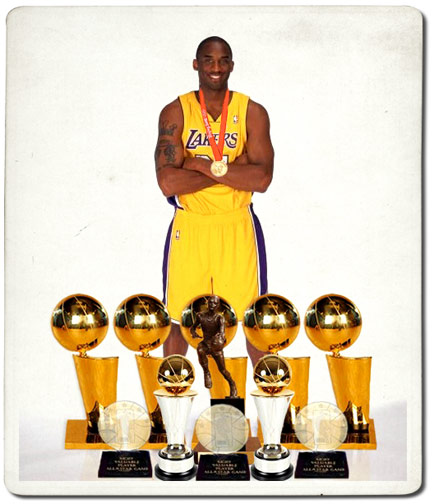


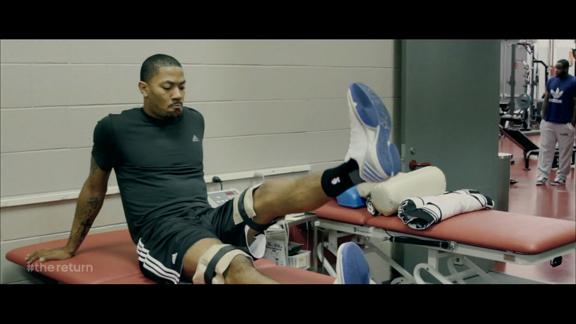
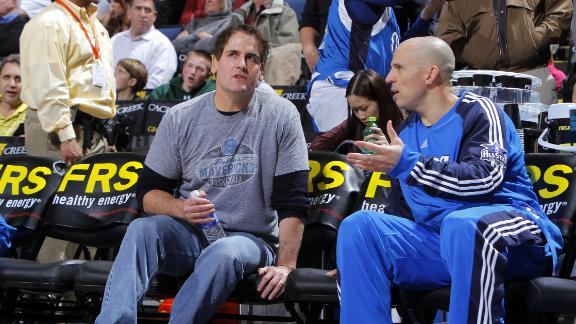
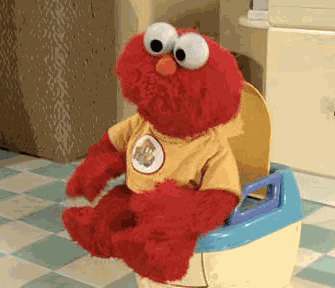 I'll be gone this weekend. Enjoy this special midweek version of the Reader.
I'll be gone this weekend. Enjoy this special midweek version of the Reader.


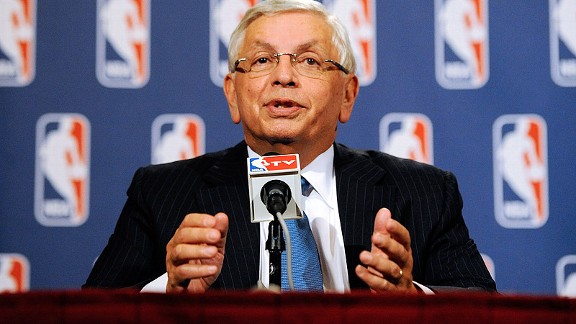
 One of the most compelling aspects of the NBA offseason -- especially for the die-hard fan -- is watching non-contending franchises "blow it up".
One of the most compelling aspects of the NBA offseason -- especially for the die-hard fan -- is watching non-contending franchises "blow it up". 



 Editor's Note: We are proud to present a guest post from Alex Maki. Alex is a Ph.D. candidate in Psychology at the University of Minnesota. This is his fourth submission to The Diss.
Editor's Note: We are proud to present a guest post from Alex Maki. Alex is a Ph.D. candidate in Psychology at the University of Minnesota. This is his fourth submission to The Diss.



 Between the Dwight Howard trade and the Melky Cabrera suspension, it's been a long week in the Diss' North Bay office. Hence, we discuss Vanessa Bryant, Jay-Z, blogging, untimely tragedies, and the NBA age requirement. And -- sigh -- Dwight Howard, of course. Many thanks to Symbol Lai and Franklin Mieuli for the labor-share, and a hearty welcome to first-time-bathroom-reader-contributor Andrew Snyder.
Between the Dwight Howard trade and the Melky Cabrera suspension, it's been a long week in the Diss' North Bay office. Hence, we discuss Vanessa Bryant, Jay-Z, blogging, untimely tragedies, and the NBA age requirement. And -- sigh -- Dwight Howard, of course. Many thanks to Symbol Lai and Franklin Mieuli for the labor-share, and a hearty welcome to first-time-bathroom-reader-contributor Andrew Snyder. I was tempted to declare Jason Richardson the Diss Guy of the week and Andrew Bynum the miss guy solely because of their excellent sartorial decisions (or the lack thereof). I mean, c'mon Bynum, you're a 24 year old man that has made somewhere around $70 million in your career, and that's what you wear to your first press conference with a new team? But who can blame him, when travesty's like Russell Westbrook's closet get held up as a shining example of fashion?
I was tempted to declare Jason Richardson the Diss Guy of the week and Andrew Bynum the miss guy solely because of their excellent sartorial decisions (or the lack thereof). I mean, c'mon Bynum, you're a 24 year old man that has made somewhere around $70 million in your career, and that's what you wear to your first press conference with a new team? But who can blame him, when travesty's like Russell Westbrook's closet get held up as a shining example of fashion?


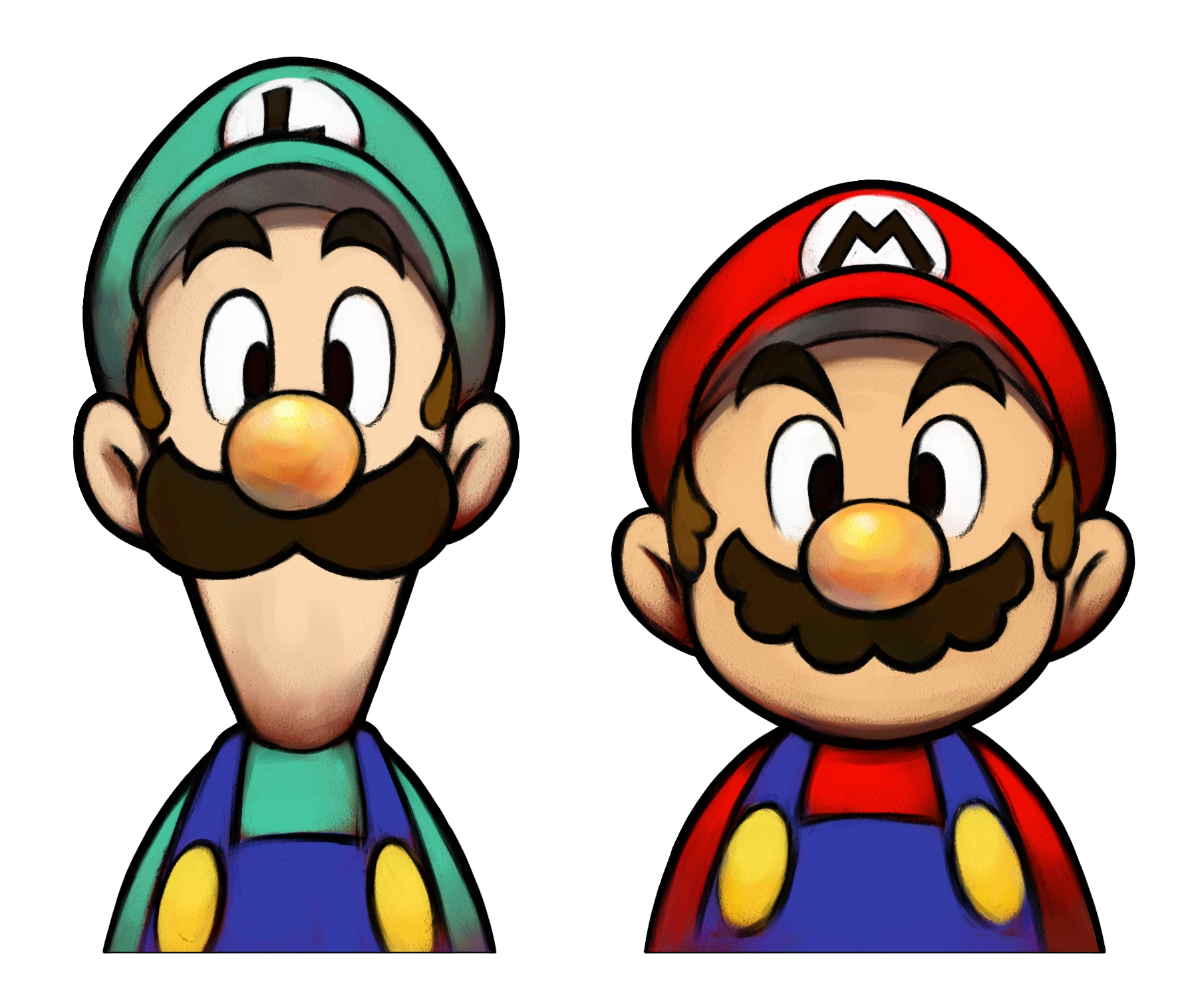 Admittedly, I’ve never been much of a gamer. My parents bought me a Nintendo 64 about two years after they were cool, and I recall getting a Sega Dreamcast for 50 bucks at an after Christmas sale once, but for the most part my video game knowledge is elementary at best. However, as a product of the 90s, I am more than familiar with the Bowser battling, Yoshi riding, Italian plumbing duo of Mario and Luigi Mario. That’s right. Look it up. Their last name is Mario. Mario and Luigi Mario.
Admittedly, I’ve never been much of a gamer. My parents bought me a Nintendo 64 about two years after they were cool, and I recall getting a Sega Dreamcast for 50 bucks at an after Christmas sale once, but for the most part my video game knowledge is elementary at best. However, as a product of the 90s, I am more than familiar with the Bowser battling, Yoshi riding, Italian plumbing duo of Mario and Luigi Mario. That’s right. Look it up. Their last name is Mario. Mario and Luigi Mario.

